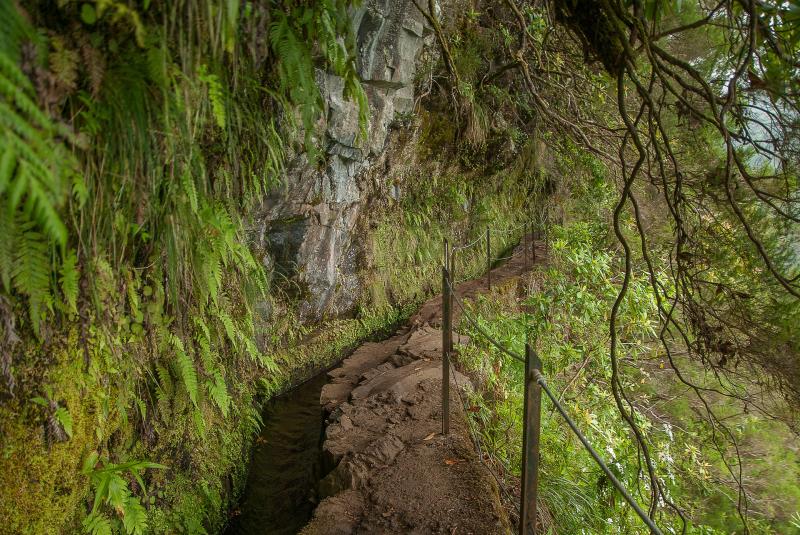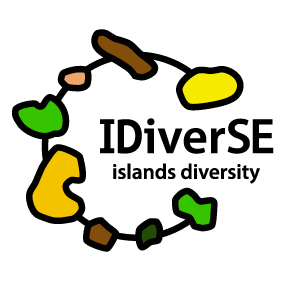
Veja a tradução para português  / Ver esta actividad en español
/ Ver esta actividad en español 

Science Trails are physical trails with stations, or stops, created by the students, which aim to raise awareness to topics particularly relevant in the framework of their community.
Through the exploration of school contents, students will follow a specific methodology to explore their community, involve important stakeholders and co-create stations that higlight their community's uniqueness and brings awareness for important local and global issues.
The methodology used in this accelerator was created under the framework of the Eramus + project called IDiverSE - Islands Diversity For Science Education (2017-1-PT01-KA201-035919) and can be explored by any interested teacher/student, regardless their location on Earth.
Teachers and students who follow the proposed methodology can submit their work and receive a certification. (report forms presented in the "share" phase)
For additional support contact: [email protected]
Visit the project's website: http://idiverse.eu/

IDiverSE, aims at addressing the diversity of Islands (and all places of the world, in general) – from geographic and biological diversity, cultural and historic heterogeneity to societal challenges - through collaboration among students from different parts of the world and with the exploration of school contents.
In order to create an effective Science trail, students have to select the most important topics to focus on, learn about them in depth, explore the community to fully see how it relates to each of the topics, come up with effective and applicable sollutions for the identified problems or to achieve the defined goals, involve important stakeholders in the process, decide what type of stations and materials they will create to share their sollutions and then create their science trail to share their work with the community.
The full process is in line with the Inquiry-Based Learning and it is described in the four phases of the Design Thinking methodology "Feel", "Imagine", "Create" and "Share".
Although guidelines are provided in this accelerator for the creation of science trails and they can be followed on their own, it is recommended that the participating students first carry out one of the project's activities, which can be found here and in the OSOS Portal as well. In these activities, students will follow very detailed guidelines which will introduce them to Inquiry and to the Design Thinking methodology, preparing them to then assume leadership in the creation of their science trail stations. All the project's activities aim to target global issues that can be explored localy and hence, they can be already used in the creation of the science trails as possibly one of the stations.
List of IDiverSE activities (to be regularly updated):
- UV radiation: friend or foe?
- Marine Waste (soon)
- Microbeads (soon)
- More to come
What does the methodology involve?
The creation of the Science trails as well as all the IDiverSE activities involve the same principles and steps:
-
Personal Geography
Before choosing any activity to implement, students should first reflect on what are the most important topics for them, personally. Personal Geography is an artistic tool that allows students to express their emotions, thoughts, opinions, regarding any specific topic.
As such, in the first step of involvement of the students in the project is the Personal Geography challenge. Students are presented with the following sentence:
"Me in my island, my island in me" (if students are not located in one island this sentence can be adapted. E.g. "me in my community, my community in me" or "me in my school, my school in me", etc.)
Then, reflecting on this sentence, students are asked to make a drawing that represents it personally. It can be abstract, colourful or black and white, etc. Each student decides how to create their art and it doesn't need to make sense to others.
After each student has created their own expression of their place in their island/community/school, a discussion is promoted that will lead to the conclusion about what are the most relevant topics to focus on for each students, group or for the whole class.
-
Inquiry-Based Learning
During the whole process, students will be following the Inquiry-Based Learning principles and teachers will be motivated to assume inquiry attitudes to support their students
-
Interdisciplinarity
Throughout the project's activities suggestions of possible collaborations among teachers of different subject domains are presented. For the creation of science trails, it is very important to involve teachers from different subject domains to support the students from their specific perspectives.
-
Design Thinking
Students follow the four phases of Design Thinking (Feel, Imagine, Create and Share), in order to dive deep into their community, involve the community and create projects with and for the community
-
Collaboration overseas
All the IDiverSE activities involve a small collaborative project accommodated in a platform called Globallab. In this platform, students will find specific guidelines to follow to collect data in their community and upload it online. These specific guidelines lead all students across the globe to collect the same kind of data, using the same tools and the same methods, allowing for the comparison of their results in order to achieve global and local answers for the same problem. Using this platform, students can communicate with each other and exchange ideas about their place in the world and their community. This collaboration is strongly motivated in each activity and should be maintained throughout its implementation.
Through the project's website, teachers have access to a collaboration platform where they should communicate to each other before implementing any activity, in order to establish a previous collaboration and to ensure that their students also communicate with each other.
For the creation of the Science Trails there is no Globallab project prepared as this would limit the students’ freedom when choosing topics. However, by registering on the platform, each user has the possibility to create on project. As such, by establishing a previous collaboration, teachers can then share their students’ projects with others and ensure the collaboration of their students. Teachers and students can also decide to use other ways of communication and collaboration.
Possible ways of promoting this collaboration are:
- In-class skype meetings;
- Creating Facebook group for students;
- Creating a chat platform like Slack, for example;
- Exchanging emails;
- Exchanging letters;
- Etc
Learning Objectives
By being introduced to the IDiverSE activities and then taking leadership over the construction of the Science Trail stations, students will learn the scientific method and the power of the Design Thinking methodology.
Furthermore, teachers should make an effort to work on the creation of the science trails around the school contents, whatever subject domain they are. When thinking about real life it is very easy to discover connections between all subject domains. This is something that should be enhanced throughout the creation of the science trails, promoting the learning of the school contents while at the same time developing fundamental skills such as:
- independence and self-security, Creativity and artistic thinking, Communication, Critical Thinking and problem solving, Collaboration, Tolerance and respect, Global citizenship awareness, etc.
Responsible Research and Innovation
One of the key aspects of OSOS is the inclusion of RRI - Responsible Research and Innovation - principles (RRI-Tools.eu). This is how this accelerator fits in the RRI model:
|
Governance |
This accelerator promotes a transparent and collaborative research so as to contribute to the development of all the involved communities. In this project, students reflect with the community on the problem and will co-create possible solutions sharing, in the end, all their work, including their research process. Furthermore, students will share their results and conclusions with other communities in islands worldwide, through collaboration initiatives. |
|
Public engagement |
Students will involve their communities as well as important stakeholders, i.e., experts in the problem they are working on. After collecting their data, students will discuss with their parents, other family members, friends, community, etc, about possible effective and applicable solutions to the problem in their islands. The whole activity will focus on the engagement of students with their community so as to take into account their real needs when solving a problem. |
|
Gender Equality
|
The problematics involved in this project are transversal for all humans in the world, regardless of their gender. At no moment, the gender of the students will be asked or relevant. On the resources created for the teachers advise is given in order to provide equal opportunities, not only for both genders but also among all the different personalities. In the guidelines given to the students an effort is made to use both male and female role models as inspiration, as well as male and female icons and individuals in pictures. Teacher are also advised to find experts of all genders and invite them to work with their students. |
|
Science Education |
Students will be engaged in Inquiry-Based activities that will lead them through the scientific method and reasoning. It is expected that after creating their projects, students will have understood what science is and how scientific knowledge can be obtained and communicated. By working with the community and sharing their work in the end, students will bring science education to their community as well as awareness for important scientific questions. |
|
Ethics |
One of the goals of this project is to raise awarenes in students and all involved community that we are all part of one system and that responsible for our actions and for the world that surrounds us. We are an integrating part of a community, including our school, family, community, country (or in this case, island), etc.. As such, during the project students will understand that cooperating and collaborating is a much more valuable effort than competing, and that knowledge and good ideas should be used in an ethical way and shared with others. When in collaboration, Scientists can overcome nearly any obstacle and provide what is necessary for a safe, developing and growing society. Furthermore, by involving their community, students will find different personalities and backgrounds and will exercise their tolerance and respect for diversity. |
|
Open Access |
After finishing their research, students will share all their work with the community, providing a fully open access to their data and conclusions. |
Participation of stakeholders
Throughout the whole process of creating the science trail, students will involve their families, acquaintances, experts and their surrounding community in the different activities, by establishing conversations, inviting them to the school, exploring their opinions and ideas, retrieving data from them, and sharing all the results. Students will work together with their communities in order to co-create solutions and improvements for important and relevant issues, at a community level.
Motivation for this project
Our key motivation is to raise awareness for the importance of valuing and protecting the unique cultural and natural heritage the islands of the world, while giving teachers the opportunity to renovate and update their teaching practice to a more student-centred approach, that focuses on the development of key 21st century skills.
While students in the islands may feel somehow isolated, we aim at providing them the opportunity to collaborate, communicate and co-create with students from other islands and other parts of the world, creating a network of work and friendship, that may last beyond the duration of the project. This is also applicable to the teachers involved in the project, which will be working in a European network, making important social overseas connections.
URL + info: http://idiverse.eu
Students age group: 6 - 9, 9 - 12, 12 - 15, 15 - 18
Subject domain: Science, Astronomy, Biology, Chemistry, Environmental Education, Geography and Earth Science, Physics
# of students participating: 1000
Updated on: 29.09.2019
 Login
Login






Comments
In order to be able to post a comment you have to be logged in to the portal. You can login or register a new account by pressing the "Login" button at the top right corner.